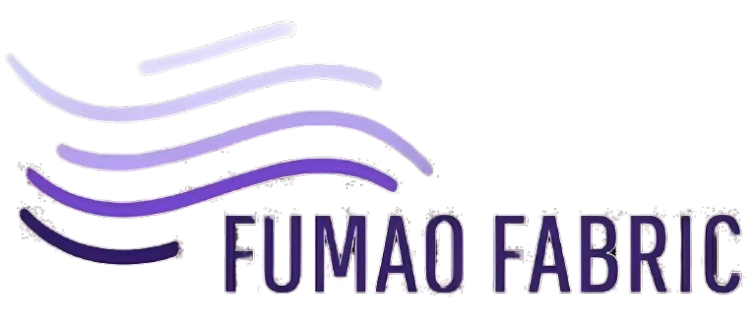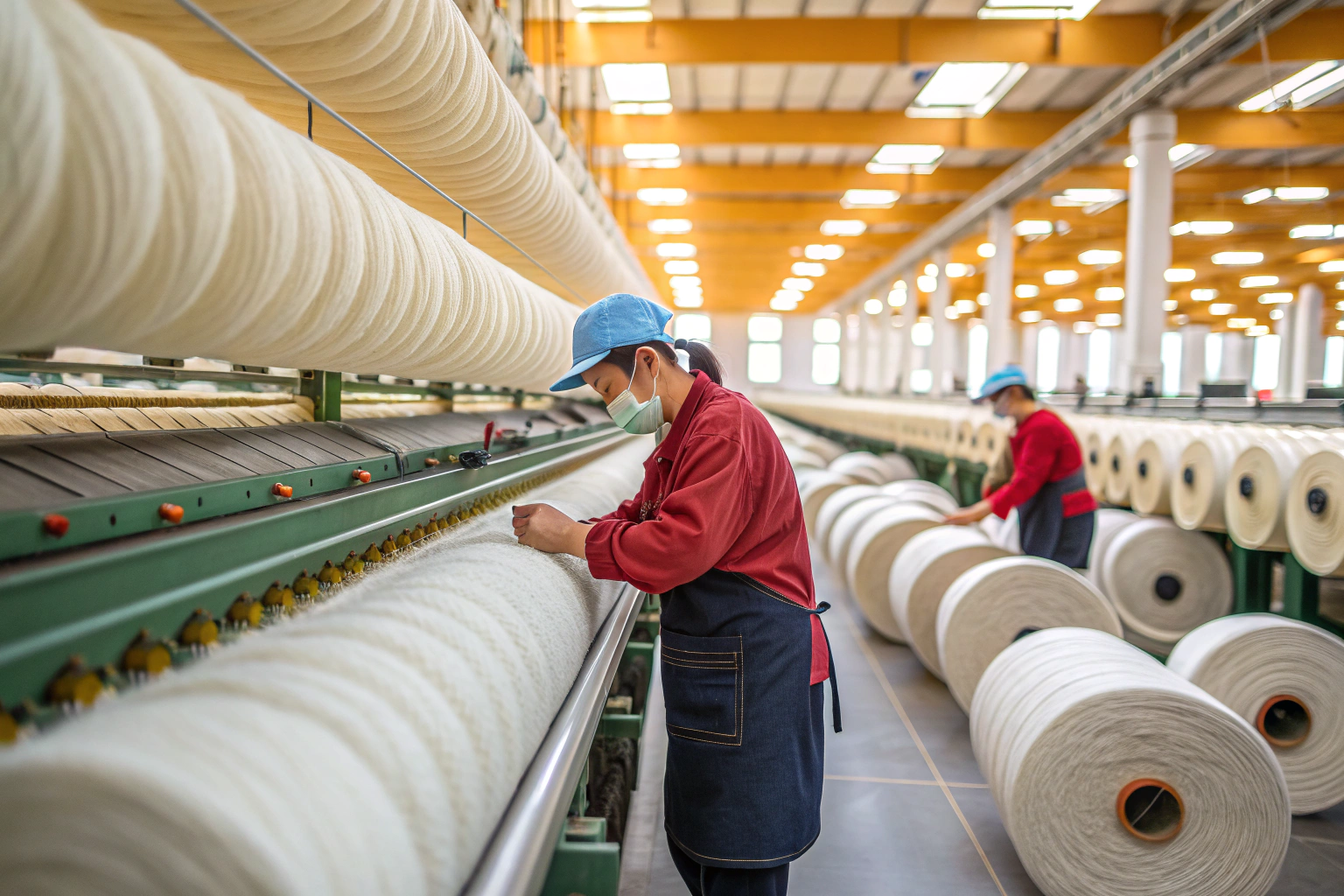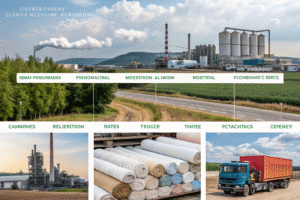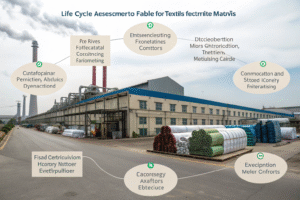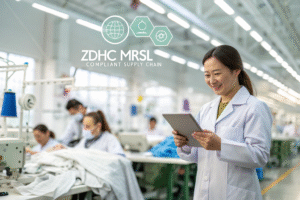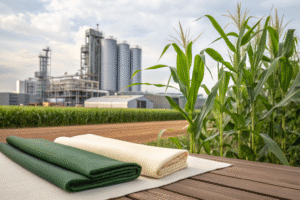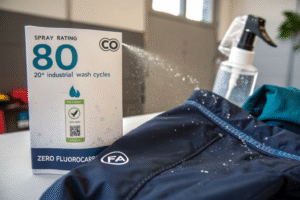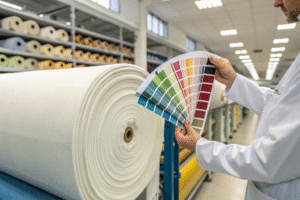Finding GRS-certified recycled cashmere yarn can feel like navigating a maze of suppliers, certifications, and logistics challenges. Many buyers worry about quality, compliance, and delivery time, especially when dealing with overseas manufacturers. If you make the wrong sourcing decision, you risk delays, customer complaints, and damaged brand reputation.
The good news is that sourcing GRS-certified recycled cashmere yarn is possible if you follow the right process and know what to look for. With the right supplier, you can secure sustainable materials, guarantee compliance for your target market, and keep your production on schedule.
By understanding certification standards, knowing where to find trusted suppliers, and applying strict verification steps, you can reduce risk and increase efficiency. Let’s walk through exactly how to do it.
What Does GRS Certification Mean for Cashmere Yarn?
The Global Recycled Standard (GRS) is an internationally recognized certification that ensures a product contains verified recycled content and meets strict environmental and social criteria. For cashmere yarn, this means the fibers are reclaimed from pre- or post-consumer sources, then processed in facilities that follow responsible manufacturing practices.
In short, GRS-certified recycled cashmere yarn offers proof that the material is both sustainable and ethically produced. It is more than just a marketing claim—it’s a third-party guarantee that meets EU, US, and global buyer requirements.
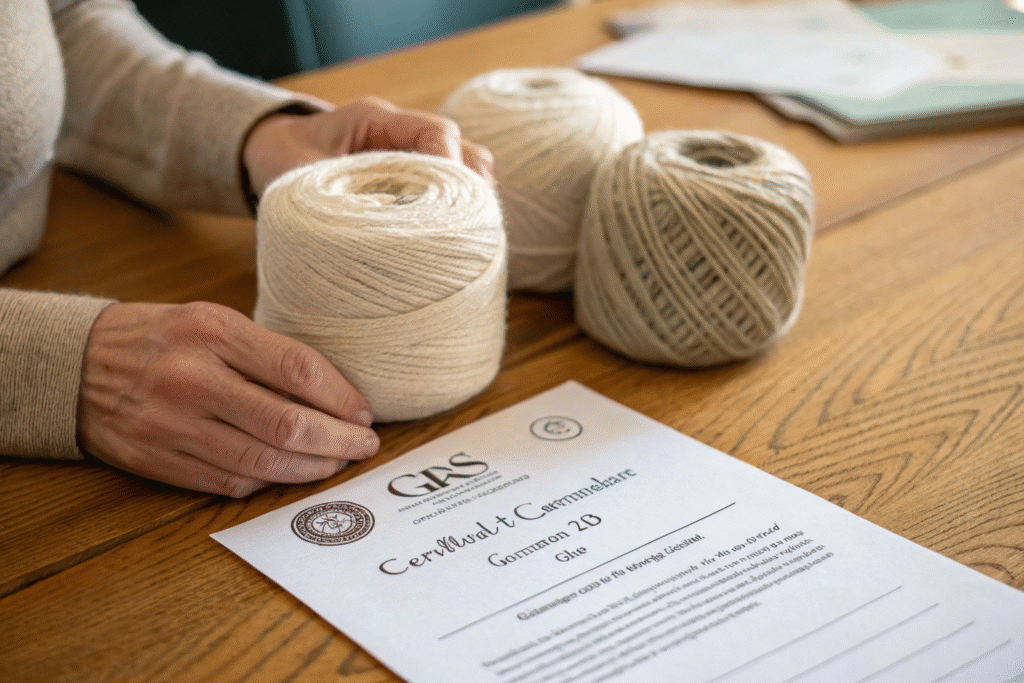
How Does GRS Certification Work?
GRS certification covers the entire supply chain—from raw material collection to final product labeling. Audits are conducted by accredited bodies, ensuring that suppliers follow strict guidelines for traceability, environmental protection, and labor rights. If you want to learn more, you can check the Textile Exchange official site and the Control Union Certifications page.
Why Is GRS Important for International Buyers?
For international buyers, especially in the US and EU, GRS certification helps meet sustainability goals, pass customs checks, and maintain brand credibility. Without certification, products risk rejection or reputational harm, especially for eco-conscious markets like Europe. Learn more about EU eco-label standards here.
Where to Find Reliable GRS-Certified Cashmere Suppliers?
Sourcing reliable GRS-certified cashmere suppliers requires a mix of research, networking, and due diligence. The best suppliers often attend major trade shows, have an established export record, and can provide test reports from recognized labs.
The most effective approach is to combine online sourcing platforms with direct supplier verification. This ensures you not only find a supplier but also confirm their production capability and compliance credentials.
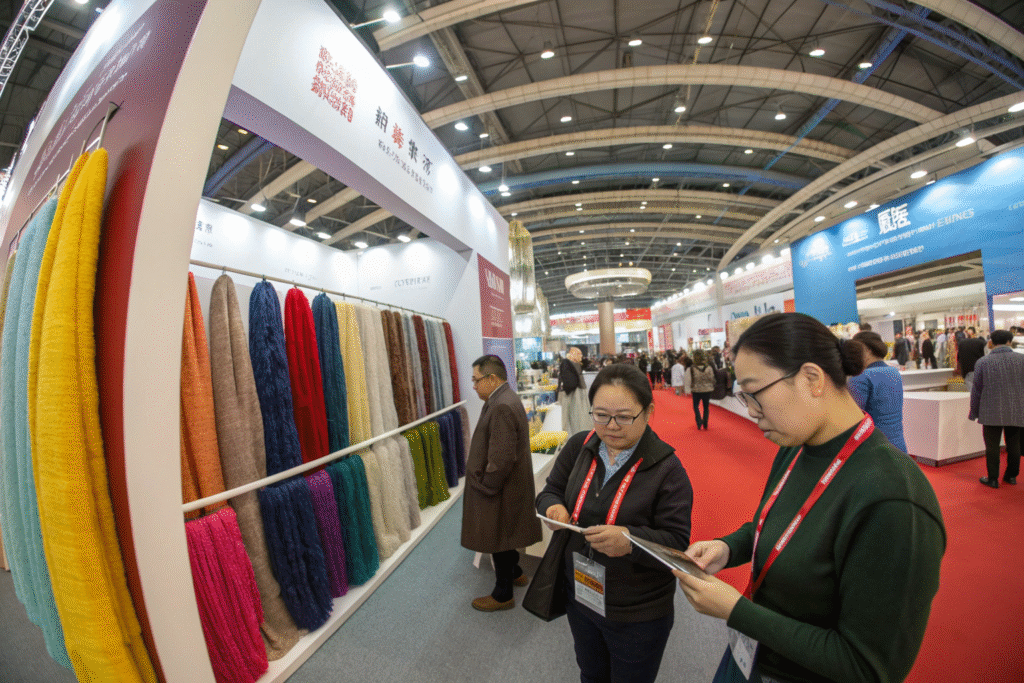
Which Trade Shows Should You Attend?
International buyers should consider attending shows like the China International Import Expo or the Intertextile Shanghai Apparel Fabrics. These events bring together certified suppliers, making it easier to compare quality and negotiate prices face-to-face.
Can Online Platforms Help?
Yes—platforms like Alibaba and Made-in-China list verified suppliers, but always check for GRS documentation and request a video call to see the facility. A good supplier will not hesitate to share their certification number for you to verify.
How to Verify the Authenticity of GRS Certificates?
Even if a supplier claims GRS certification, you should never take it at face value. Counterfeit or outdated certificates are common in the textile trade.
The safest method is to verify directly with the issuing certification body. You can confirm whether the certificate number matches the supplier and check its validity dates.
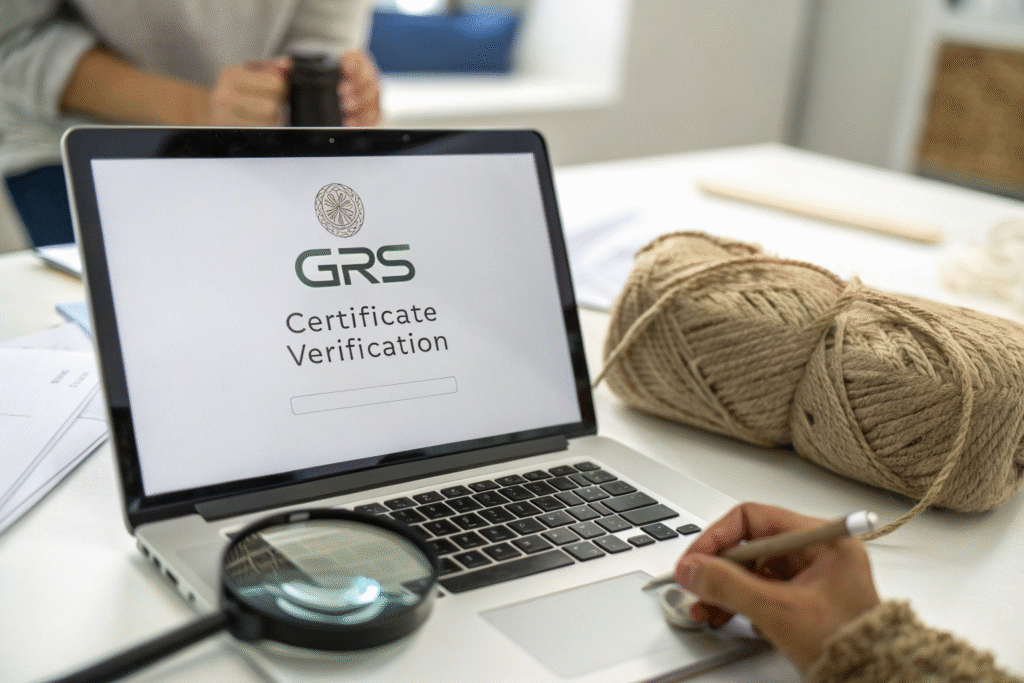
How to Check Certificates Online?
Certification bodies like Control Union and Intertek allow you to search their database. Simply enter the certificate number and cross-check the company name, scope, and expiry date.
What If the Certificate Is Expired or Invalid?
If you find inconsistencies, ask the supplier for updated documents or choose another vendor. Relying on invalid certificates can cause customs delays, product recalls, or brand damage. You can read more about import compliance rules on the U.S. Customs and Border Protection website.
Best Practices for Importing GRS-Certified Cashmere from China
Importing GRS-certified recycled cashmere from China requires careful planning to avoid delays and extra costs. You need to coordinate with the supplier, freight forwarder, and customs broker to ensure smooth delivery.
A structured import process will help you manage risks and maintain timelines. This includes clear contracts, insurance coverage, and pre-shipment inspections.
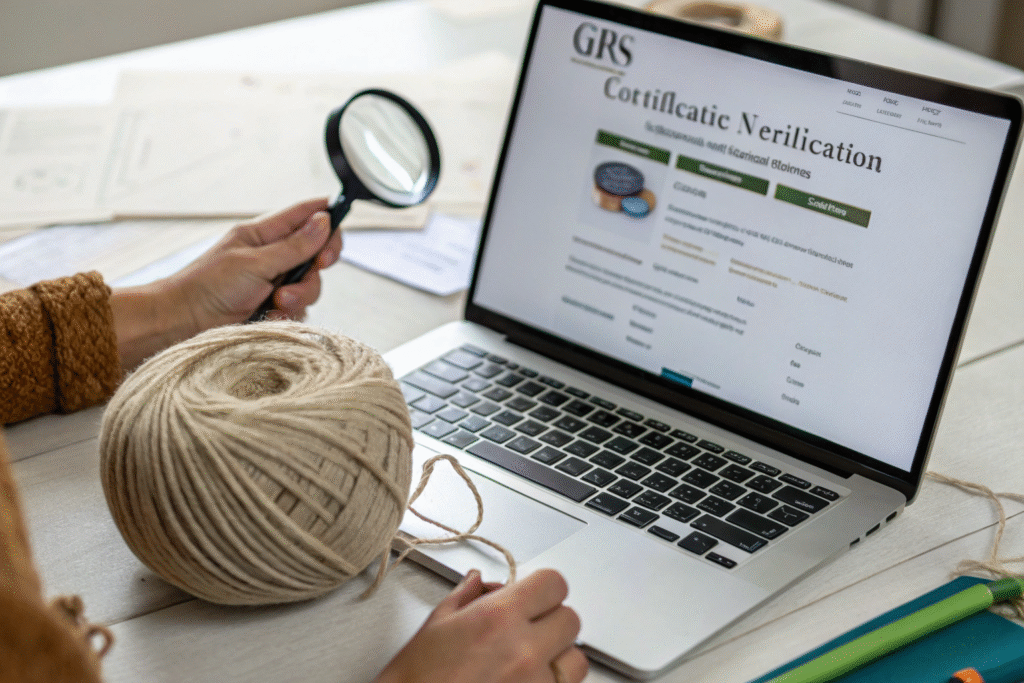
How to Manage Logistics Efficiently?
Work with experienced freight forwarders who have handled textile shipments before. You can find reputable options through Freightos or Flexport. Book shipments early to secure space, especially before Chinese New Year when logistics slow down.
How to Reduce Tariff Costs?
Leverage free trade agreements or optimize HS codes where legally applicable. Consult with your customs broker to see if your shipment qualifies for preferential duty rates under agreements like the RCEP.
Conclusion
Sourcing GRS-certified recycled cashmere yarn is about more than finding a supplier—it’s about building a supply chain you can trust. By understanding what GRS certification means, knowing where to find reliable suppliers, verifying their credentials, and following best import practices, you can ensure your products meet the highest standards of quality and sustainability.
If you are ready to start your own sustainable cashmere production, we at Shanghai Fumao can help you develop and supply GRS-certified fabrics that meet your exact needs. Contact our Business Director Elaine at elaine@fumaoclothing.com to discuss your order today.
